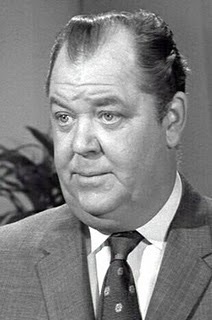Timothy J. Pruitt's Blog, page 415
August 27, 2015
The Broom Factory
 Before I share with you the purpose of this article, I must share with you a small business story. It’s the kind that never took place, but could have. While the people and place are fictional, the concepts are very real. Please take a moment and visit The Broom Factory.
Before I share with you the purpose of this article, I must share with you a small business story. It’s the kind that never took place, but could have. While the people and place are fictional, the concepts are very real. Please take a moment and visit The Broom Factory.
The people of Pepperwig Kansas had a problem, the vacuum cleaner. For most of America, it was a boom to easier cleaning. To the citizens of this town, it was a threat to commerce.
The local broom factory had kept the town in business with it’s reliable hardware. They even had a secondary line with a brand of dustpans. Now, everyone was worried for their local bread and butter industry.
Everyone except Arthur Cleveland, he had a plan. It was radical, but he knew it would work. He took the stem of the broom, repainted it, and had a nice walking stick. The dust pan, bent slightly became a coal scoop, and the bristles of the broom became a small cleaning brush.
Arthur presented his idea to the owner of the Broom Factory, Mr Bryant. Whether he thought Arthur’s idea was brilliant, or he was just so desperate, he agreed. The idea worked, and before you knew it, the factory was turning out even more new items using the same materials.
The factory and the town was rescued from ruin. Each family continued to make a good living. As a matter of fact, each household had enough left over money to purchase, a brand new vacuum cleaner.
The moral of this silly little story is simple and clear. Our resources don’t have to change to make something completely new, just our outlook does. Perspectives and paradigms are normally our only obstacles between us and the horizon.
What broom is in your idea closet that can become a walking stick, a coal shovel, and a hand brush? That’s the blessing of children, they repurpose ideas every day. We make the mistake of calling it play, when we should view it as research and development.
Look at an old idea today. Pretend your five years old again, transform it into something new. After you’ve laughed and had a little fun, ask yourself. How can I implement this new idea? You just might find that old broom, makes a great walking stick to climb a new mountain with.
PruittWrites Facebook Page
PruittWrites Facebook Page
August 25, 2015
Work Spaces

Wikimedia Image
Work spaces fascinate me. I suppose, mainly because they are the environment where things are produced. You might call them the address of the idea factory, the danger is when we mistake them for the factory itself.
All a work space is, at its core, is a combination of time, place, and necessary objects. The things that enable you to produce the plan in your head. I would like to share three tips to a conducive work space.
First, the physical location is not as important as the value you attach to it. It isn’t so much the space, but that you place value in the space. Does your work space, whether permanent or portable, inspire you? Is it your gateway to producing what is in both your heart and your mind?
Thomas Jefferson had a special “writing box” made so he could write anywhere. He used it to draft The Declaration Of Independence, the desk is now in the Smithsonian. A mechanic’s toolbox can turn any location into a makeshift garage. A garage would be better, but neither he nor President Jefferson allowed location to restrict their ability to produce. Instead they compensated for the location’s accommodations and restrictions.
The second tip is that the time to create doesn’t have to come in huge blocks. Much like the where, the when can be bits and pieces of time scattered throughout a day. Some are more creative in the morning, others find the evening hours to be productive time.
Anyplace can become a work space for creativity, if we apply creativity.
 Tweet This
Tweet This
Please don’t misunderstand, I believe in setting aside large blocks of time, even days for projects. However, when that is not possible, set aside what time you can. I’ve experienced moments when I could accomplish in five minutes what I couldn’t in fifty. Use the time you have, and don’t wait for the time you don’t have to become available.
Third, don’t lock yourself into a pattern or process in either your style or your tools. If you’re a speaker or writer, strive to make every project unique. As humans, if we aren’t careful, we can coast along in a pattern.
This may get us by, but it will also like a log in a river, stall our creativity. Soon, it will result, not only in reproduction, but in a lack of production of any kind. Your mind will eventually revolt against the mundane. Next, it will fear that you can no longer create anything original of any quality.
Guarding against method attachment upfront, will help to prevent other problems later. The same is true about the tools you use to produce something. Everyone has a favorite pen, notebook, or program to create with, but don’t be so enthralled by it you refuse to learn anything else.
When we become rigid about our methods, we can very quickly lose touch with improvements in methods. I don’t write this from a tech lover’s perspective, but as a content producer. Hand drawn books gave way to the printing press, then the typewriter, now the laptop and the tablet.
Tools get better, and we should never reject an advancement in one simply because we’ve never used it before. The learning process inspired you as a student twenty years ago, let it do the same today. Anyplace can become a work space for creativity, if we apply creativity.

Don’t allow your circumstances, your surroundings, or your resources to limit your imagination. All of these things are important, and each is a factor, but they are not the deciding factor. If your conditions are not ideal, seek the idea that you can leverage to make it happen.
The definition of a work space is a space in which to work. Allow your passion for your work to produce in you something greater than you are. Once you do that, the work will produce the space. That’s what Solomon meant all those years ago in the Proverb he wrote at his work space.
Proverbs 18:16
16 A man’s gift maketh room for him, and bringeth him before great men.
PruittWrites Facebook Page
PruittWrites Facebook Page
August 23, 2015
iPainting: Heifetz
 We hope you enjoy our portrait of the famous violinist Jascha Heifetz in this Sunday Afternoon Art Post “Heifetz”.
We hope you enjoy our portrait of the famous violinist Jascha Heifetz in this Sunday Afternoon Art Post “Heifetz”.
PruittWrites Facebook Page
PruittWrites Facebook Page
Life’s A Song
 Today, on my birthday, I hope you’ll indulge a bit of whimsy. I share with you a birthday song I wrote through the night. Though I’m not musical, I thought it was cute. Of course in my head, Tony Bennett is singing it.
Today, on my birthday, I hope you’ll indulge a bit of whimsy. I share with you a birthday song I wrote through the night. Though I’m not musical, I thought it was cute. Of course in my head, Tony Bennett is singing it.
Opening
They say I’m getting old
Add another birthday to my equation
But if I might be so bold
On this ceremonial occasion
I’d like to point out that
Chorus
When you learn why you’re here
Life’s a gift from Our Creator
The music drowns out each fear
It’s a symphony of laughter
Things’ll happen, both right and wrong
But when you know what you’re after
You’ll want to sing along
It’s tune is so upbeat, Life’s a song
Verse 1
I believe that Jack was right
Thirty nine is just a number
The future looks so bright
I’ve cast my doubts asunder
Life’s melody’s too sweet
To let worry cramp my style
So Each day I’m gonna greet
With a prayer and a smile
Chorus
When you learn why you’re here
Life’s a gift from Our Creator
The music drowns out each fear
It’s a symphony of laughter
Things’ll happen, both right and wrong
But when you know what you’re after
You’ll want to sing along
It’s tune is so upbeat, Life is a song
Verse 2
What’s age but a mere digit
Loved ones make it all worthwhile
Don’t worry, don’t fidget
Sell that frown, buy a smile
Celebrate this live and live it
It’s not rocket science or physics
Stand clear and strong
Pick a happy lyric
Life’s a song
Chorus
When you learn why you’re here
Life’s a gift from Our Creator
The music drowns out each fear
It’s a symphony of laughter
Things’ll happen, both right and wrong
But when you know what you’re after
You’ll want to sing along
It’s tune is so upbeat, Life’s a song
Closing
So like a happy cartoon
Today and all year long
Hum your snappy tune
Life’s a song!
PruittWrites Facebook Page
PruittWrites Facebook Page
August 22, 2015
The Sea Horse: Clinics
 Henry stood on the tarmac. Carla stood beside him. They watched as their adopted son, Aaron Matthews and his bride got off the helicopter and joined them. They had always been a little sad that Aaron had to give up medicine, but they understood. Aaron had a patient in Oceania that needed constant attention.
Henry stood on the tarmac. Carla stood beside him. They watched as their adopted son, Aaron Matthews and his bride got off the helicopter and joined them. They had always been a little sad that Aaron had to give up medicine, but they understood. Aaron had a patient in Oceania that needed constant attention.
The problem was, now he had another patient, the whole country. Titanic was threatening the entire East coast. Oceania’s team of heroes faced a challenge. How to protect the country from one base. Ironically, the task that they needed to accomplish, didn’t need a crimefighter’s touch, but an administrator.
Henry brought this up to his son in the car. “Aaron, I’ve been thinking about your problem. I have a solution, but I don’t know that it will be accepted by your group.” “At this point, I think they’re willing to do anything, if it means stopping the epidemic Titanic is planning.”
Mimic, Titanic, and High Society were not only threatening to use his powers, coupled with the Infantino Machine to create a man made series of earthquakes, flash floods, and other weather related problems. They also were taking over gangs in major cities and supplying them with powerful weapons.
“You need more than a central hospital, so to speak, you need a series of clinics. Some of your allies need to move, at least temporarily, into the cities where the threats are. Oceania can generate new protectors, they set the precedent. The other cities don’t have time to learn it.”
Elizabeth looked at Aaron. “They’ll listen to Henry. They won’t like it, but they’ll listen.” Aaron sighed. “It’s the right answer, I just dread losing coverage here. We’ll have to start training people to take their place.” Carla spoke up. “No, not you two. Neither of you have the time, but I know who does.”
PruittWrites Facebook Page
PruittWrites Facebook Page
August 21, 2015
iPainting: Composer John Williams
 Today’s bonus iPainting is a tribute to Star Wars, Indiana Jones, and ET composer John Williams.
Today’s bonus iPainting is a tribute to Star Wars, Indiana Jones, and ET composer John Williams.
PruittWrites Facebook Page
PruittWrites Facebook Page
#CollageFriday: Color
 This week’s #CollageFriday is all about “Color”.
This week’s #CollageFriday is all about “Color”.
PruittWrites Facebook Page
PruittWrites Facebook Page
August 20, 2015
An Uncommon God
 1 Peter 4:12
1 Peter 4:12
Beloved, think it not strange concerning the fiery trial which is to try you, as though some strange thing happened unto you:
Simon Peter knew that, more dangerous than the trial itself, was the isolation it would attempt. It’s one thing to be attacked, it’s another to feel as if, the attack is unique to you. If you feel that no one else has experienced it, then it is far more frightening.
He had walked a lonely road, denying Jesus, and weeping bitter tears. Jesus not only warned him, He pointed out that the others would scatter also. Jesus said “I have prayed for thee … When thou art converted, strengthen the brethren.”
God was assuring him that he would both go in, and come out of their trial victorious. It is this same Apostle who would go on to say that God is no respecter of persons. What He did for one, He would do for all.
The subject was so important that Paul also addressed it. In 1 Corinthians 10:13, he states that what we are facing, others have also, and they have overcome. There is an escape from your trial, and God is faithful to empower us to win this battle.
The road of trials and temptations isn’t a new one. It may be repaved, but it’s the same valley David walked through. Moses crossed it, and so did Samuel. Your guide isn’t merely a King or a Prophet, your traveling companion is Christ, and He has walked this way before.
He knows every dip in the road, but what’s more, He knows the vehicle. He knows the weight limit of your shoulders, the strength of your nerves, and the capacity of your endurance. Jesus will never send a compact car to do the job of an eighteen wheeler.
Wherever you are, you will make it out of it. However big the ugly threat blocking your way, it will fall. That place of confusion you are in, direction will arrive in time. How do I know?
Your Guide fought and won at Calvary’s bloody crest. He hasn’t sheathed His sword, nor rested His eyes. He is a Faithful Partner in your journey through this world. As long as He walks beside us, everything we face, is common next to an Uncommon God!
1 Corinthians 10:13
There hath no temptation taken you but such as is common to man: but God is faithful, who will not suffer you to be tempted above that ye are able; but will with the temptation also make a way to escape, that ye may be able to bear it.
PruittWrites Facebook Page
PruittWrites Facebook Page
August 18, 2015
Balancers

Over thinking and under thinking are two parallels of the same extreme. I’ve been guilty of both. At times, I’ve practiced one when needing to sharpen the other.
Some people are waiters, others are jumpers, and a few are balancers. Balancers are those people who determine when to plan, and when to leap. The question is, when to wait, and when to jump? I believe there are some tools we can use to understand which is needed in a particular event. I would like to share three of them with you.
The first is to evaluate your situation. Where are you in your challenge? Do you have time to weigh all of the obstacles? If we practice both awareness and quick observation, we can normally get a reliable assessment of the problem.
We may not know everything, but we will know enough. Enough is all that will really benefit you anyway. If you have too much information, you need to narrow it down to what is relevant for the task ahead.
Once you have done this, tip two is to plan what you can. No matter what your predicament, there will always be factors you can’t assess. Equally true is the fact that they’ll be about the same number that you can.
Most people don’t know that the actor Jimmy Stewart was the World War II fighter pilot and later General, James Maitland Stewart. Jimmy’s father counseled him before ever leading bombing missions in World War II. He advised to plan for everything you can, and then place in His hands what you couldn’t plan for.
He addressed what he could, and then placed his faith in three things. First, in His Creator. I strongly believe in Faith being the deciding factor in any challenge I face.
Second, he placed faith in his training. They didn’t just hand him a plane because he had been famous, in fact, that worked against him. They placed him in command, because they had trained him to successfully carry out the mission.
Third, he had faith in his equipment. He knew that he had the best plane America could make, and no one could make them better. He made himself as ready as he could make himself.
The third tool is quick adaptability. Whether a fighter pilot or a businessman, you can’t make room for every contingency. What you can do is to quickly learn to adapt them to for your benefit.
To do this, ask yourself three questions. How does this new information alter my situation? How can I use it to make the impact positive instead of negative? What does this not change about the problem?
If the change is superficial, then it doesn’t really affect you. Don’t allow the suddenness of it’s appearance to throw you. If it does alter the situation, how can you make the change beneficial instead? If you can, you’ve gained, if you can’t, it’s just one more factor you’re facing.
If it doesn’t completely change the outcome, the. It will only add to your success or defeat. This may seem elementary, but once you know it’s not a game changer, then merely continue to play the game. If an advantage isn’t at hand, either be or make your own game changer.
Often the difference between winning and losing is only a few seconds. It isn’t that something simply guessed the right answer, they just assessed quicker than anyone else in the room. A bonus tip is to continue to practice these three tips. The more you do, the more efficient you’ll become. Then you’ll be ready whether it’s time to pause, to pounce, or to practice balancing some hybrid of the two.
PruittWrites Facebook Page
PruittWrites Facebook Page
August 17, 2015
Hisbits: The Voice Of Otis
 He was Goofy, Owl, and Otis. Hal Smith’s career was about playing characters people loved. Most didn’t know Andy and Barney’s lovable still finder, was also Disney’s favorite dog. From Mayberry to villains of Scooby Doo, he lent his voice to countless classics.
He was Goofy, Owl, and Otis. Hal Smith’s career was about playing characters people loved. Most didn’t know Andy and Barney’s lovable still finder, was also Disney’s favorite dog. From Mayberry to villains of Scooby Doo, he lent his voice to countless classics.
The Petosky, Michigan native was born in 1916. He spent his formative years in Massena, New York. After High School, he married Louisa in 1936. They would remain married for fifty one years, until her death.
From around the time of his marriage, he was a Disc Jockey until 1943. Then, Hal joined the United States Special Services. It was a theatrical unit, entertaining the troops, during World War II.
Once the war was over, it was time to travel to Hollywood. Parts in multiple TV shows from Dennis the Menace to Red Skelton began his career. Between 1960 to 1968, he was Otis Campbell. The kindly town drunk, according to Don Knotts, didn’t drink in real life.
A decade prior, he began his other legacy, one that would entertain generations, voice work for animation. When the first man to play Goofy, Pinto Colvig died, Hal took his place. His other Disney roles included Owl on Winnie The Pooh, and Flintheard Glumgold on Ducktales.
Hal worked for Hanna Barbera on such shows as Quick Draw McGraw, and Huckleberry Hound. From 1960 to 1961, he filled in as Elmer Fudd, when the original actor passed away. More than once, he gave his voice to Winnie The Pooh himself. It is rumored that a character Hal played on Space Angel, Taurus, inspired Gene Roddenberry to create Star Trek’s Mr. Scott.
Hal’s role as Goliath, in Davey And Goliath, spanned 1959 to 1975. His later animated roles were equestrian, playing Phillipe the horse in Beauty and the Beast, and Jafar’s stallion in Aladdin. Radio listeners knew him as Mr Whittaker on Focus On The Family’s Adventures In Odyssey.
In 1986, along with Andy and the rest, they filmed Return To Mayberry. Only over time, Otis had changed. He was still lovable, but now he sold ice cream instead of drinking.
The character had his own key to the jail, while the actor had one to our hearts. From a leg of lamb to outsmarting Barney, Mr Campbell could do it all. Apparently so could the voice of Mr Smith. Isn’t it ironic? Otis always wanted Andy to read him a story, while Hal Smith made a life out of telling them.
PruittWrites Facebook Page
PruittWrites Facebook Page



